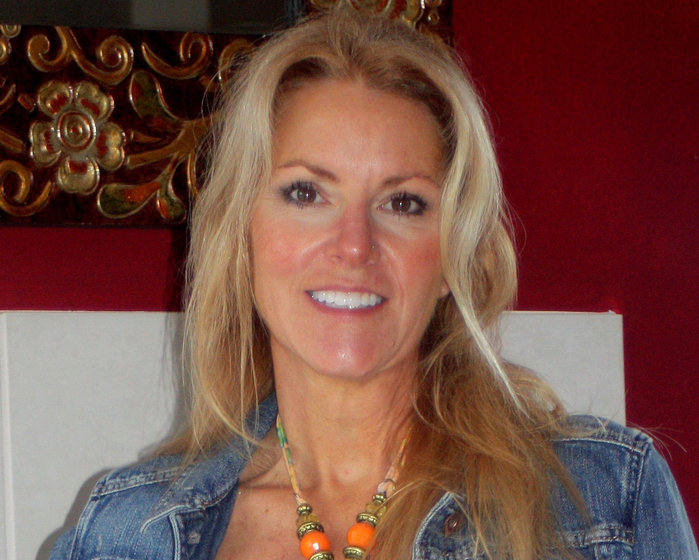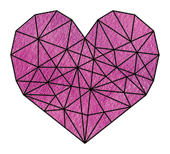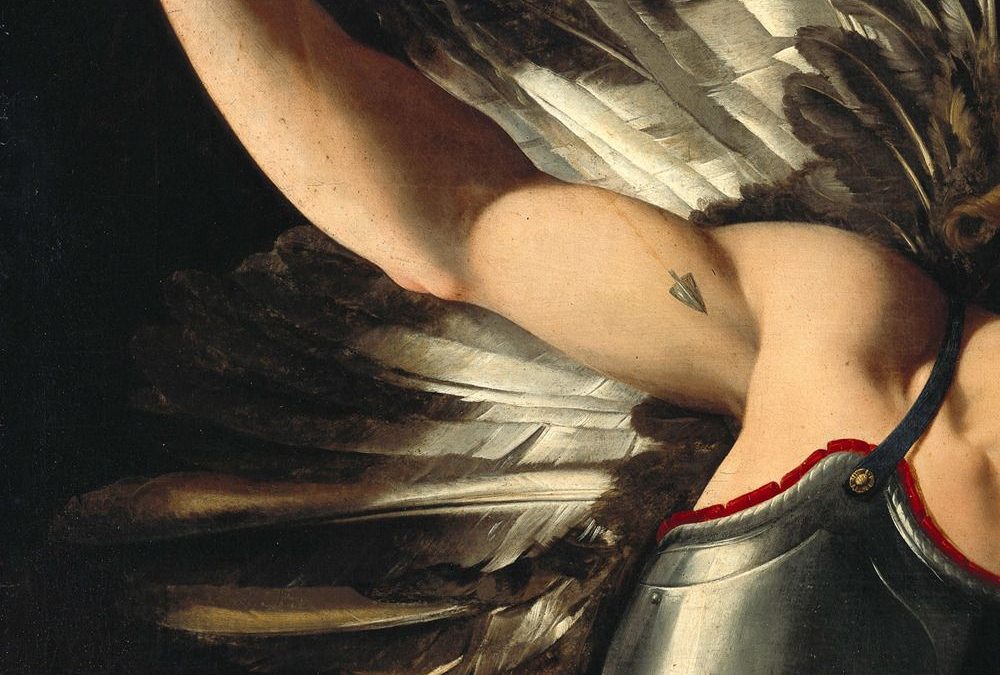Amid a serious pandemic and 2020 political election, it is not surprising that many people are dreaming about catching the virus, natural disasters, even Armageddon. But at the other end of the spectrum, I am also witnessing people dreaming about Eros, the god of Inner Love. Eros literally means “desire for that which is missing.” Eros is passion, beauty and often manifests in dreamtime as the lover archetype. And so, it makes perfect sense, that during this time of social distancing, anxiety, and uncertainty, many of us hunger for the beloved, for that which brings fulfillment and authentic connection.
Here is a recent dream a female client had about Eros:
It’s dark outside but the moonlight is casting light onto the road I’m walking on. There is a dark-haired man coming toward me and I find him extremely attractive. As he gets closer, I see he has a sword inside a sheave, hanging from his belt down and it’s dangling down the side of his right leg. Despite the sword, I am unafraid yet curious. He seems familiar but I do not know for sure if I know this man. He’s looking right at me and recognizes me. He seems glad to see me. There is a pavilion close to where we are standing and I notice a white bird perched on the roof of the pavilion, watching me. I notice the moonlight highlights the bird’s wings. I want to embrace the man but am worried he may not want me to. For some reason, I feel the need to apologize for not having seen him for so long, for neglecting him. He looks at me but says nothing. I reach out to touch his arm and as I do, the white bird screeches and takes off into the night sky. My yearning to hug this man is getting stronger but I fear he will reject me. When I wake up, I am missing this man and still longing for him.
If we delve into this dream, we notice the dream occurs at nighttime, possibly revealing the dreamer’s lack of awareness about her need for passion in waking life. Moonlight is streaming down, symbolizing “Luna,” the embodiment of the divine feminine. Eros appearing as an attractive man, is the dreamer’s Animus (male aspect) while the sword depicts the aliveness, strength and sensual delight Eros brings to our life. There is a sense of familiarity about him and the dreamer feels guilty for having neglected him for so many years, signifying her ignoring her own needs and desires. The bird’s wings, highlighted by moonlight, are a universal symbol of Eros. It waits and watches to see if she will open her heart to this man, flying away once she finally reaches out to him.
Furthermore, the dreamer desires to rekindle the connection, not sexually, but heart-to-heart. In her waking life, we discussed the emptiness she was feeling from isolating during the pandemic and being overly focused on the political arena. There was no joy, no passion, she felt barren. Thus, Eros began flooding her dreams. She said she always awoke wanting more.
When Eros appears all our senses are aroused. We are filled with the same aliveness that we feel in the beginning of an intimate relationship; colors appear brighter, aromas smell intoxicating, and every-day oozes with the nectar of life. In dreamtime, Eros gives us vital life force energy. In our relationships, Eros provides the embers which feed our connection. Without it, we feel barren, disconnected, and wondering, Where did the passion go? I’ve counseled numerous couples who still love one another but are deeply missing the beginning arc of passion that brought them together. Sometimes this leads to projecting our inner Eros onto a human being which leads to problems. “If we mistake a human lover for our Inner Lover,” writes Stephen Aizenstat, “we can experience even the slightest of criticisms as rejection by Eros.”
If Eros shows up in your nighttime dreams, or even waking dreams/fantasies, ask yourself: What brings me passion? Eros appears to remind us of the desire we long for in our lives. Whether we feel passionate about a project, a new role, or an exciting relationship, Eros’s presence beckons us to live life as fully as we possibly can—even amid a pandemic. In ancient Greek times, the Greeks did not focus on writing obituaries when someone died. They only asked the question: Did he or she have passion?
Namaste.
Laura Grace, PhD

Laura V Grace, PhD, is a spiritual activist, Jungian counselor and author. A member of Spiritual Director’s International, her background is in world religions, East-West spirituality, Jungian dream analysis, and integrative studies. She has attended The New Seminary and One Spirit Learning Alliance in New York and received her PhD at Pacifica Graduate Institute. Laura’s counseling practice is grounded in depth psychology and somatic studies. She specializes in relationship issues (couples and individuals), women’s issues, spirituality, anxiety, stress and depression.
Active in the International Association for the Study of Dreams, Laura has taught more than two hundred courses on the transforming power of night-time dreams. Her unique process “Dream Inquiry” helps dreamers interpret and use their dreams as a powerful tool. Her newest book entitled Dreams: Soul-Centered Living in the 21st Century, A depth psychological and somatic approach to transformation, published by Aeon Books is available November, 2020 through Amazon.




